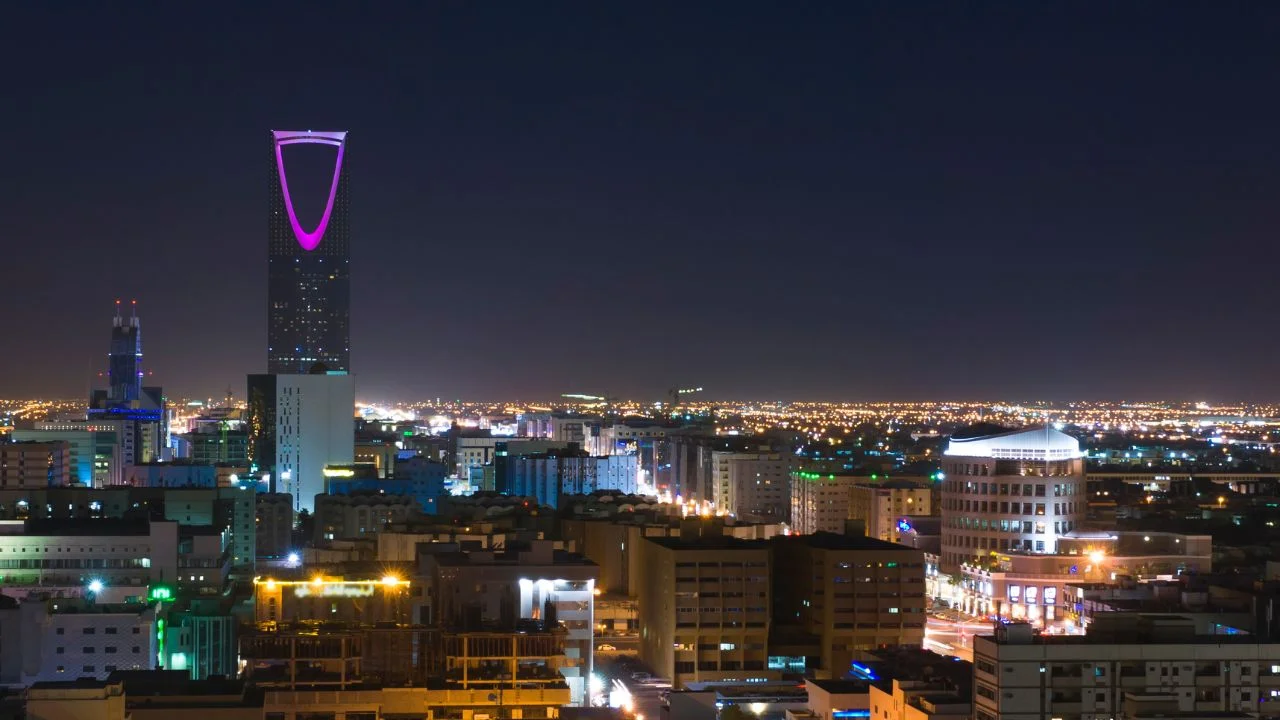
Benefits of Using an Employer of Record (EOR) in the Middle East
02 Sept, 202511:48Summary: The Middle East offers major growth opportunities in energy, infrastructure, a...

Summary:
- The Middle East offers major growth opportunities in energy, infrastructure, and technology, with national strategies driving demand for skilled talent.
- An Employer of Record (EOR) enables fast, compliant market entry without the need to set up a legal entity or navigate complex sponsorship laws.
- EORs handle HR, payroll, visas, and local compliance, reducing risk and freeing internal teams from administrative burden.
- NES Fircroft’s regional presence and licences across key markets, such as Saudi Arabia, UAE, Qatar, and Oman, ensure reliable, scalable workforce solutions.
Driven by projects such as Saudi Arabia’s Vision 2030 and the UAE's renewable energy developments, the Middle East is becoming a major centre for engineering and innovation. Companies in industries like Oil & Gas, Power & Renewables, Construction, and Technology are keen to have a presence in this region. However, entering this market can be complicated without local knowledge or entities.
NES Fircroft is a leading Employer of Record (EOR) with local licenses, helping companies simplify expansion, reduce risks, and accelerate hiring. This blog outlines the benefits of using an EOR in the Middle East and addresses common questions from businesses considering this option.
Why the Middle East? Why Now?
According to ICAEW, Middle East GDP is projected to grow by 3.5% in 2025, with the GCC economies expanding by 4.4%, driven by increased oil production and resilient non-oil sectors. Governments are investing heavily in infrastructure, energy diversification, and technology. This presents a window of opportunity for companies in the engineering and technical sectors to engage in high-impact projects. Here are some long-term national strategies:
- Saudi Arabia is investing approximately $1 trillion in infrastructure by 2030
- The UAE plans to invest $54 billion in renewable energy by 2030, aiming for 100% clean domestic power production under its Net Zero 2050 strategy
- Qatar is expanding LNG output from 77 to 142 million tonnes per year by 2030
- Kuwait is investing $4 billion in new power generation projects to meet rising energy demand and modernise its grid
What is an Employer of Record?
An Employer of Record (EOR) is a third-party partner that legally employs staff on behalf of another company. Through this service:
- The EOR is the official, legal employer
- Your company directs the day-to-day activities of employees
- The EOR manages compliance with local employment, immigration, and tax laws
- HR, payroll, benefits and compensation packages (health insurance, gratuity, pensions, allowances), and work visas/permits are administered through the EOR
This model combines entry speed with full compliance, allowing companies to focus on project delivery and business growth without the extended process of establishing a local entity. For those unfamiliar with Middle Eastern labour systems, it can often be the most cost-effective and safest route to expansion.
Why use an EOR instead of setting up a legal entity?
Setting up a legal entity in the Middle East typically involves months of legal, financial, and bureaucratic processes. Depending on the country, incorporation can require:
- Appointing local sponsors, in some jurisdictions:
- Qatar – foreign investors must partner with a Qatari national who holds at least 51% of the company shares for most mainland business activity. Exceptions allowing up to 100% foreign ownership apply only to specific sectors approved by the Ministry of Commerce and Industry.
- Kuwait – foreign ownership is generally capped at 49% for companies operating outside designated free zones. A Kuwaiti partner must hold majority ownership unless the business is licensed under Law No. 116 of 2013 through the Kuwait Direct Investment Promotion Authority (KDIPA).
- Oman – mainland companies typically require local sponsorship, with an Omani partner holding a majority stake, unless operating in special economic or free zones. In this case, businesses are permitted 100% foreign ownership under the Foreign Capital Investment Law and the regulations of the Public Authority for Special Economic Zones and Free Zones (OPAZ).
- Registering with different ministries
- Acquiring licenses
- Significant upfront capital investment
- Ongoing administrative management
For many organisations, especially those looking to support short-to-medium-term projects or test the market, these requirements don’t make financial or operational sense and can be a prohibitively slow route.
By contrast, using an EOR:
- Accelerates market entry – start hiring within weeks, not months
- Eliminates entity setup costs – no need for upfront legal structures
- Reduces compliance risks – local experts manage regulatory obligations
This makes EOR a far more agile and cost-effective solution for international expansion.
The Benefits of Using an EOR in the Middle East
1. Fast market entry and local expertise
Working with an EOR in the Middle East offers significant advantages, including the ability to establish a presence almost immediately. By leveraging the EOR’s network, companies can begin their operations in weeks instead of months, which is typically required for corporate registration, permissions, and licensing. NES Fircroft’s established entities in the Middle East provide clients access to local and global talent pools, enable faster onboarding, and offer valuable assistance with cultural integration, ensuring smoother market entry.
2. Cost savings
Incorporating a subsidiary or branch in countries like Saudi Arabia, Qatar, or the UAE can be expensive, often requiring substantial initial capital and ongoing administrative oversight. An EOR eliminates these expenses by allowing companies to hire staff without building their legal infrastructure. Payroll, benefits, compensation, and compliance administration are also managed centrally, reducing the burden on internal HR teams that might not have the necessary resources. This leaner approach makes scaling into the region more cost-effective, particularly for project-based work with fluctuating project pipelines.
3. Simplified compliance and risk mitigation
With major variations from one Middle Eastern nation to another, labour laws are complicated and quickly evolving. For instance, the Saudisation programme classifies businesses in Saudi Arabia according to the percentage of Saudi employees, directly impacting access to government services and visa approvals. In Oman, Omanisation demands that all commercial entities over a year old have at least one Omani national or face limitations on work permits. The UAE has intensified Emiratisation, mandating that companies with 50 or more employees increase their Emirati workforce by 2% annually, with fines of AED 9,000 monthly for each shortfall in 2025.
An EOR takes on this duty by ensuring payroll, visa sponsorships, and employment agreements comply with local laws. For clients, this means less exposure to legal conflicts, reputational damage, and fines while still trusting their workforce is employed in full compliance.
4. Streamlined HR and payroll
Particularly when each country demands compliance with its own systems and reporting standards, handling HR and payroll in several countries can quickly become onerous. An EOR streamlines these processes and provides consistency, accuracy, and efficiency. Employees are paid in the correct currency and on time, wage protection policies are respected, and benefits are handled per local expectations. This uniformity improves employee satisfaction and allows companies to distribute their internal resources more effectively.
5. Flexible workforce scaling
In industries where projects are cyclical or short-term, workforce needs can quickly shift. An EOR enables companies to scale their teams up or down without long-term commitments, making workforce planning more agile and responsive. Whether you’re mobilising staff for a major infrastructure project or winding down operations after project completion, NES Fircroft’s EOR model provides the flexibility needed to adapt instantly while staying compliant.
Common Questions About EOR in the Middle East
How does an EOR help with hiring in Saudi Arabia under Saudisation policies?
Saudi Arabia’s Saudisation (Nitaqat) programme requires companies to employ a certain percentage of Saudi nationals. NES Fircroft, as an established EOR with local expertise, supports businesses:
- Navigate Saudisation quotas
- Identify and recruit local Saudi talent
- Remain compliant while also employing expatriates where skills are scarce
Can an EOR help me hire employees in Qatar without a local entity?
Yes. NES Fircroft holds the necessary local licences and legal presence to employ staff in Qatar on your behalf. This means you can hire both local employees and expatriates without establishing a subsidiary.
What are the legal and tax advantages of using an EOR in Bahrain, Oman, or Kuwait?
Each Gulf state has its own employment and tax frameworks. By using an EOR, you benefit from:
- Legally compliant contracts tailored to each jurisdiction
- Correct handling of tax obligations (where applicable)
- Reduced risk of misclassification or labour lending violations
Because NES Fircroft already has entities in these countries, you eliminate the complexity of registering separately and avoid potential penalties.
Why is the UAE a strategic location for using an EOR?
Attracting international corporations in many sectors, the UAE has established itself as the commercial centre of the Middle East. Its ideal foundation for regional activities comes from its strong infrastructure, good connectivity, and the presence of free-zone establishments. Nevertheless, the UAE also has demanding visa and sponsorship regulations that can be difficult to manage independently. NES Fircroft’s EOR solution enables companies to hire staff quickly and compliantly, whether in Dubai, Abu Dhabi, or one of the many free zones.
How does an EOR ensure compliance with Middle Eastern labour laws and visa regulations?
NES Fircroft’s in-country teams manage:
- Employment contracts compliant with local labour codes
- Visa sponsorship, renewals, and work permits
- Payroll processing aligned with wage protection systems (WPS)
- Ongoing monitoring of legislative updates
What HR and payroll services does an EOR provide?
In addition to being the legal employer, an EOR takes responsibility for all back-office HR functions. That includes payroll processing, tax and social security contributions (where applicable), benefits administration, onboarding, and offboarding. By centralising these services, NES Fircroft creates a smoother, more reliable employee experience while removing administrative burden from your internal teams.
Expand into the Middle East with NES Fircroft Today
With legal entities established across key Middle Eastern markets, including Saudi Arabia, UAE, Bahrain, India, Oman, Qatar, Kuwait, and Iraq, and dedicated in-country support teams, NES Fircroft empowers businesses to expand quickly and compliantly. Our award-winning EOR services simplify hiring, payroll, and immigration, so you can focus on confidently scaling your operations. Whether you're entering a new market or mobilising a global workforce, we're ready to help.
Speak to our EOR experts today and take full advantage of the Middle East’s vibrant business landscape.





